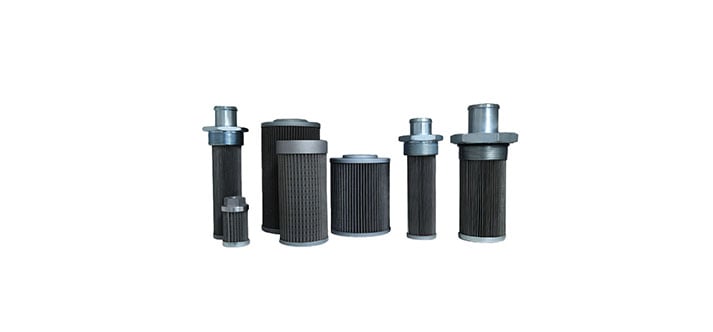Impurities in hydraulic oil filters can lead to reduced system efficiency, component damage, unstable performance and oil deterioration. These hazards are specific in many aspects, the following is a detailed analysis of the impurities in the hydraulic oil filter will lead to what hazards:
1. The system efficiency decreases of hydraulic oil filters
(1) Blockage problem
Impurities can clog small holes and gaps in the hydraulic system, affecting the flow performance of the system.
(2) Internal leakage
Particulate impurities may cause damage to the hydraulic cylinder seal, resulting in increased internal and external leakage.
(3) Thrust decline
The particle impurities cause strain and wear on the moving surface of the hydraulic cylinder and reduce the effective thrust.
2. Component damage of hydraulic oil filters
(1) Scratches and wear
The solid particle pollutants aggravate the surface wear of the moving parts of the hydraulic pump and the oil cylinder, and even scratch and bite.
(2) Valve damage
Due to particulate matter embedded in the sliding surface, the spool and valve body are difficult to move or get stuck, which intensifies the wear.
(3) Filter breakdown
When the filter mesh is clogged seriously, the pressure drop is too large may break through the filter screen and completely lose the filtration effect.
3. The performance is unstable of hydraulic oil filters
(1) Movement disorder
Pollutants partially or completely clog the orifice or gap, change the system performance, and cause dysregulation.
(2) The pressure is unstable
The presence of pollution particles causes the pressure of the pressure valve to drift randomly and the dynamic response speed to slow down.
(3) The control accuracy decreases
After the servo valve is contaminated, the control sensitivity and flow amplification factor decrease, and the rigidity of the control system decreases.
4. Oil deterioration of hydraulic oil filters
(1) Oxidation acceleration
At high temperature, the oxidation speed of hydraulic oil is accelerated, and the oxidation effect is doubled when the oil temperature is increased by 10°C.
(2) oil deterioration
After deterioration, the viscosity and anti-rust properties of the hydraulic oil are reduced, the emulsification and defoaming properties are reduced, and the low temperature fluidity is poor.
(3) colloidal suspended matter
The brown gelatinous suspension produced by deterioration will block the throttle hole or make the valve core stick, resulting in failure of operation.
5. The system is faulty
(1) Frequent failures
More than 75% of failures in hydraulic system are caused by hydraulic oil pollution.
(2) Increased maintenance costs
Frequent repairs and replacement of parts due to contamination increase maintenance costs.
(3) Shortened life span
Hydraulic oil pollution accelerates the wear of parts and system aging, shortening the service life of equipment.

